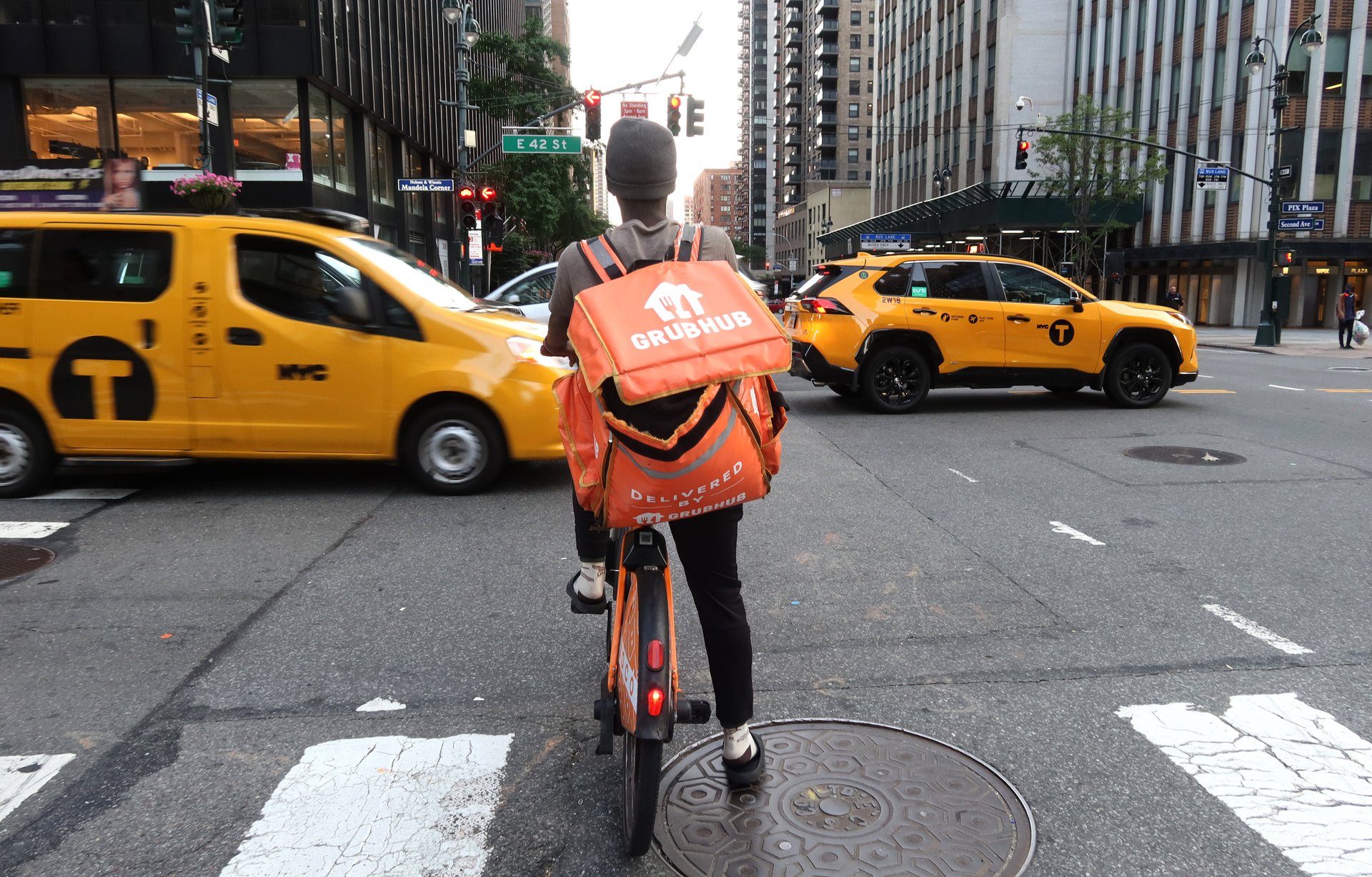Grubhub beat bigger competitors to contracts with Amazon and Starbucks. Why?
The Chicago-based platform has only has 8% of the food delivery market

In the food delivery wars, the smaller and more nimble-footed are landing major wins.
Suggested Reading
That’s been the case for Grubhub at least. The Chicago-based online food delivery platform, which only has 8% of market share, has recently been gobbling up big whales, including coffee giant Starbucks and leading U.S. grocery retailer Albertsons. Those retailers are cozying up to Grubhub in an effort to expand their reach.
Related Content
Greg Buzek, president and chief AI officer at market research firm IHL Group, said that smaller companies are coming out on top over some of their bigger competitors, such as Uber Eats, because of fees.
“Smaller players are often more flexible on what they do or not do as well for a client,” Buzek said. “They might just deliver, they might pack and deliver, it depends on the retailer.”
In Grubhub’s case, the Just Eat Takeaway-owned company has widened the services it provides as it relates to food delivery. In late May, Amazon said it would expand its partnership with Grubhub as it looked to give Prime members more food delivery options, while also aiming to win over inflation-weary consumers. That agreement, similar to Grubhub’s deal with Starbucks, only applies to deliveries on restaurant orders. Meanwhile, Grubhub’s partnership with Albertsons applies directly to grocery delivery.
Akin to Grubhub, Uber Eats has also been vying to capture customers’ dollars through expanded deals. In early May, Uber Eats boasted that it could expand its restaurant business via a partnership with grocery technology company Instacart, and by doing so, would offer customers nationwide the ability to use Instacart’s app to order from “hundreds of thousands of restaurants, powered by Uber Eats.”
In early April, DoorDash said it would start delivering orders from Lowe’s customers as it looked to expand from just food delivery to home improvement as well.
According to IHL’s Buzek, retailers tend to work with delivery companies because of affordability and value.
Retailers are not optimized for “eaches,” but optimized for cases of products, Buzek said. He added that while every retailer is different, in the current environment, companies already have a “hard time staffing their stores appropriately without the further burden of e-commerce fulfillment.”
“Retailers realize that ship from store and local delivery is often much more cost effective and profitable by partnering, rather than doing it themselves,” Buzek said.